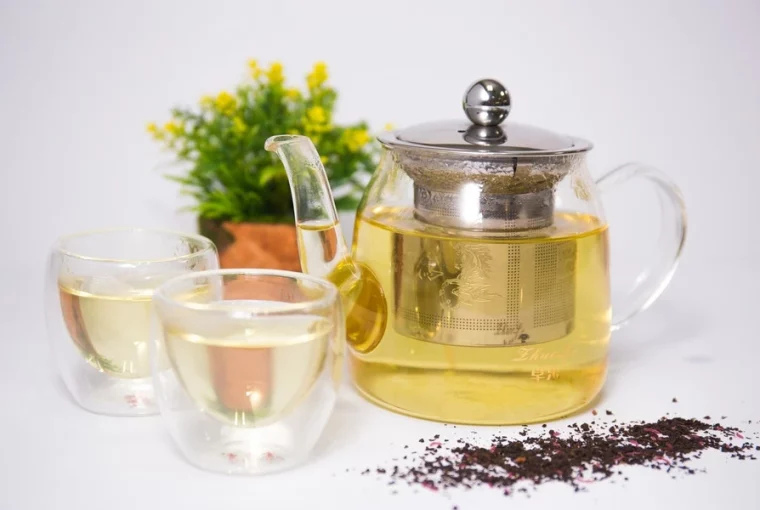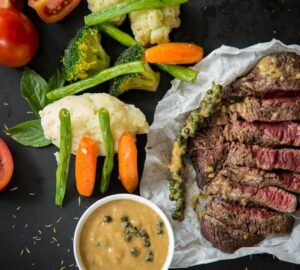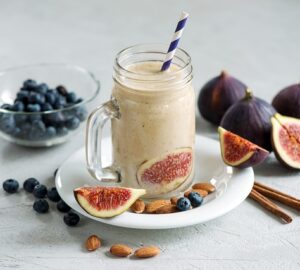You might be concerned that drinking tea could break your fat. In reality, it does not.
You will be surprised to know that medical experts and nutritionists actually encourage drinking brewed herbal teas during fasts – such as green tea, black tea, and other herbal teas, all of which have significant and proven health benefits.
Intermittent Fasting And Tea: Ketogenesis
A reference to a 2019 research printed in The New England Journal of Medicine (NEJM) stated that the purpose of intermittent fasting is to enable the body to metabolically switch to ketosis. This process activates when your body does not have enough carbohydrates to burn. Instead, it burns fat and instigates the production of ketones, which it can use for fuel. This process is also termed ketogenesis.
An interesting finding regarding ketogenesis is that it activates cellular signals to check the aging process; researchers found that ketogenesis help decreases inflammation, which promotes blood-sugar regulation.
Unsweetened teas contain zero carbs, protein, fat, and nearly zero calories, and so do not cause an insulin spike. They are generally okay during a fasting period. You can flavor your unsweetened teas with the addition of honey water, lemon juiced water, or some ACV (apple cider vinegar).
Intermittent Fasting And Tea: Insulin Resistance
According to statistics about fasting conducted by a certified clinical nutritionists, unsweetened teas do not cause blood sugar spikes. However, the study confirmed that the addition of sugar, honey, or milk would surely break the fast.
To include teas during your fasting regimen, you could opt for plain loose teas and tea bags brewed in water, as they are generally acceptable to drink. However, mixing sugar, syrup and any sort of alternative dairy is not acceptable during your fasting.
Why Tea Does Not Break A Fast?
There is a certain threshold you must consume in order to break a fast. The fast-breaking threshold is generally considered to be 50 calories. A single cup of tea generally contains one to three calories, so you’d have to drink a copious amount to truly break your fast.
Of course, once you start adding sweet-tasting additional ingredients like sugar or honey, the quantity of calories increases substantially. By adding sweetened ingredients such as honey or sugar, the calorie counts rapidly increase. A sweetened herbal brewed tea has approximately eighty calories.
Ideal Brewed Herbal Teas For Your Fasts
Unsweetened tea during fasting is a good idea and the following teas appear to offer the most effective dividends during your intermittent fasting journey:
Green tea
Green tea is packed with antioxidants, which offer excellent immune system support. Moreover, the tea helps with offsetting cravings and hunger pangs. Before going for a green tea brand, make sure it does not contain added preservatives or sweeteners.
Chamomile tea
Nothing compares to the calmness and serenity Chamomile has to offer. Usually, chamomile tea comes in whole herbs including leaves, stems, and flower infusions. In addition to keeping your fast intact, Chamomile tea will provide you with a focused mind, and ward off stress and anxiety. It is known to promote restful sleep while keeping digestive health in prime condition.
Peppermint tea
Perhaps one of the best teas for digestive ailments, it can satisfy your hunger pangs and keep the cravings at bay. Furthermore, peppermint tea freshens up your breath and helps with headaches.
Ginger tea
Ginger tea has been a natural therapeutic agent for a while now; it is a potent anti-inflammatory and antiseptic. A warm cup of ginger tea can ward off digestive ailments, soothe a sore throat, and relieve inflammation throughout the body.
Black tea
High in antioxidants and prevalent in caffeine, black tea can increase metabolism, boost energy and promote mental health. However note, that it can be drying and dehydrating because of its high caffeine content, so it is best to limit consumption in dry and hot weather. Still, the black tea works wonders to deflect hunger pangs.
Hibiscus tea
One of the best teas to help check high blood pressure amongst other vascular ailments, hibiscus tea is a true natural wonder. The tart-tasting hibiscus flowers are unique. Hibiscus tea is packed with antioxidants for an effective immune response in case of a microbial invasion or infection.
Conclusion: Is Intermittent Fasting For You?
Intermittent fasting has several advantages that include weight loss, lowered inflammation, reduced risk of cardiovascular disease, and blood sugar regulation. However, in order to achieve sustainable effects, one must continue with this practice over time; this is certainly not a quick fix.
Despite the fact the studies are still ongoing, time-framed intermittent fasting has shown promise in controlling weight and boosting overall health. As with any other meal design, it is also wise to check with your doctor or a dietitian for your specific intermittent fasting plan.




